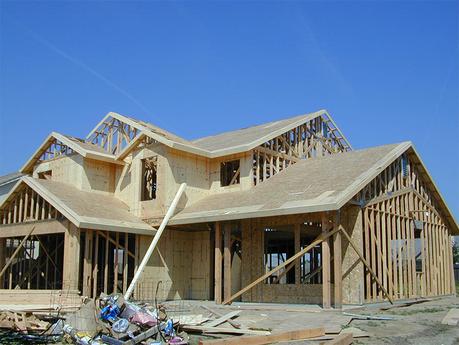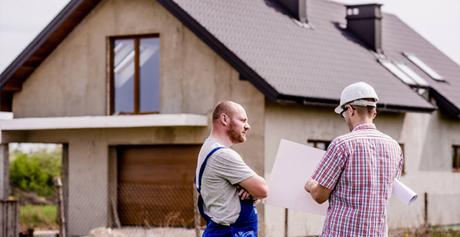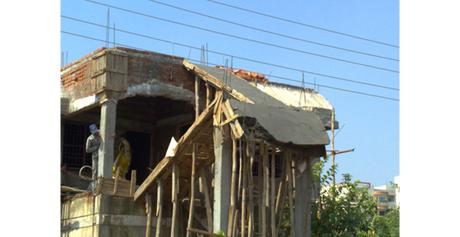
Industry Trends
When purchasing a new-construction home, there's an expectation of quality and durability. After all, everything is brand new-from the foundation to the fixtures. However, even with modern building standards, things can go wrong. That's why it's crucial for your new-construction home to come with a warranty. A home warranty offers peace of mind, protects your investment, and provides financial coverage for repairs or defects that may arise after you move in. In this blog, we'll explore why a home warranty is essential for any new build, what it typically covers, and how you can ensure your home is fully protected.
What is a New-Construction Home Warranty?

A new-construction home warranty is a service agreement or insurance that covers potential defects or issues that arise with a newly built home. Unlike a traditional home warranty that typically covers appliances and systems in older homes, a new-construction warranty focuses on structural elements, workmanship, and materials used in the build. These warranties are often provided by the builder or a third-party warranty company and can range in duration, from one-year limited warranties to more comprehensive 10-year plans. Essentially, a new-construction home warranty ensures that if something goes wrong with your home after you move in, the necessary repairs are covered by the builder or warranty provider.
Why You Need a New-Construction Home Warranty
While many people assume that a brand-new home will be problem-free, this isn't always the case. Even with modern technology, advanced building materials, and highly skilled builders, mistakes or defects can occur. Having a warranty in place safeguards you from unexpected repair costs and headaches down the road.
Protects Against Construction Defects

Building a home is a complex process that involves multiple contractors, materials, and steps. Mistakes can happen, even in the best-planned projects. A new-construction home warranty protects you against structural defects, such as foundation issues, framing problems, or roof leaks, which might not be apparent until months or even years after moving in. Some common issues that can arise in new homes include settling foundations, plumbing leaks, or problems with electrical systems. Without a warranty, these issues can be costly to fix, often leaving homeowners with expensive repairs that could have been avoided.
Covers Workmanship and Materials
In addition to protecting against major structural problems, a new-construction home warranty typically covers issues related to workmanship and materials. This might include problems with drywall, insulation, windows, doors, and flooring. If there are flaws in the craftsmanship or subpar materials used in construction, the warranty ensures that these problems will be corrected by the builder. For example, if you notice cracks in the walls, uneven flooring, or leaks around windows, a warranty can help cover the cost of repairs. It's a way to ensure that your home meets the high standards you expected when you purchased it.
Peace of Mind for the Homebuyer
Buying a home is one of the biggest investments you'll make in your lifetime, and with that comes a natural level of anxiety. Will the house live up to expectations? Will it stand the test of time? A new-construction home warranty provides peace of mind, knowing that any defects or problems will be handled without you having to bear the financial burden. The warranty acts as a safety net, allowing you to enjoy your new home without the stress of potential unexpected costs. Instead of worrying about expensive repairs, you can rest easy knowing that your investment is protected.
What Does a New-Construction Home Warranty Typically Cover?
While coverage can vary depending on the warranty provider, most new-construction home warranties follow a standard format and timeline for what they cover:
One-Year Workmanship Coverage
Most builders provide a one-year warranty covering issues related to workmanship and materials. This includes things like cabinetry, countertops, tile work, windows, doors, and other interior finishes.
Two-Year Systems Coverage
Many warranties extend to two years for major systems such as HVAC (heating, ventilation, and air conditioning), plumbing, and electrical systems. These are critical components of your home, and defects in these systems can cause significant issues.
Ten-Year Structural Coverage
The longest and most important aspect of a new-construction warranty is the structural coverage, which can last up to 10 years. This part of the warranty covers major structural elements like the foundation, load-bearing walls, and the roof. Structural defects can be the most costly to repair, so this extended coverage is crucial.
How to Ensure Your New Home Has a Warranty
When purchasing a new-construction home, make sure to ask the builder about the warranty they offer. It's essential to get the details in writing, including the duration of coverage, what is included, and any exclusions or limitations. Some builders may offer their own warranty, while others partner with third-party warranty companies to provide more comprehensive protection. If your builder doesn't offer a warranty, you can always purchase one from a reputable third-party provider. However, most reputable builders will include some form of warranty with their homes as part of the standard sale. A new-construction home warranty is an essential safety net that every homeowner should have. It protects against the unexpected and ensures that any defects, whether structural or cosmetic, are covered by the builder or warranty provider. By understanding what a new-construction warranty covers and ensuring you have the right protection in place, you can safeguard your investment and enjoy your new home with confidence. Whether you're building your dream home or purchasing a newly constructed property, make sure that a solid warranty is part of the deal. It's a small step that can save you significant time, money, and stress in the future.

